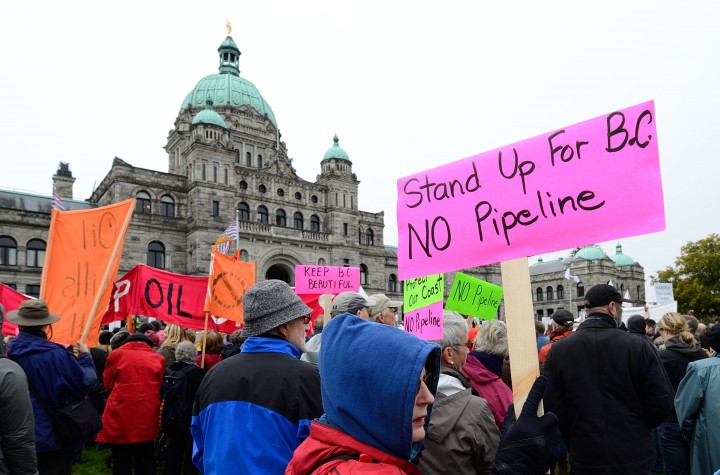So British Columbia and Alberta agree that there should be an agreement, negotiation or framework on pipelines. Confusing? Given the events of meetings on, then off and then announcements made on November 5th, it’s hard not to be. But what has really changed, what matters?

What has not changed is agreement on the first four conditions that the BC government laid down last year. These are the successful completion of an environmental review for pipeline projects, “world-leading” marine spill response systems, land oil-spill prevention, and address First Nations’ requirements and treaty rights.
On the fifth condition where BC receives a portion of Alberta’s oil royalties, there was no agreement until the qualified proposal of yesterday. Many economists including myself wrote of how the original condition would create an economic quagmire for the movement of goods in this country. It seems that BC and Alberta agree with this assessment with the announcement that the royalties are off-the-table.
In its place the fifth condition of benefits will now be a negotiation between a pipeline proponent and the BC government.
As I have written before, this negotiation is defining BC’s new role in energy corridor. With that in mind, here are some key points to keep in mind.
- High blood pressure drug recalled over low blood pressure pill mix-up
- ‘Doesn’t make sense’: Union files labour complaint over federal 4-day in-office mandate
- Canadian Tire ordered to pay nearly $1.3 million for false advertising
- Ottawa gives Canada Post a $1.01-billion loan amid ongoing financial struggles
First, there will be a natural gas pipeline that will run to the Kitimat part of the LNG plant in that location. First Nations and others have agreed to this pipeline. The message for Gateway pipeline is: it is not the pipeline but the concern about its contents and their risks.

Get breaking National news
Second, it is in the best interests of Canadians that the negotiations and any agreement between proponents and the BC government be transparent. The agreement has wider implications for the free movement of all goods in this country. If new barriers are to be created then the conditions and impacts of the barriers must be known.
Third, what will the economic benefits look like? If they are a tariff or tax on the product itself then we are not far removed from a royalty and the issues that would create. However, if the benefits focus on the risks then there are some serious opportunities to move forward in a win-win situation for all.
One example is the establishment of trust funds that would be used for mitigation and spill management. Another suggestion is what Harvard’s Michael Porter calls ‘shared value’. For pipelines, this economic and strategic principle will take some imagination given that their true value is in the product shipped, not the pipe itself. However, one starting example, in addition to other economic benefits First Nations receive, that where a pipeline is built through traditional trapping and hunting grounds then First Nations would be trained and employed to be first eyes on the ground for leaks mitigation and detection.
Fourth, there is wisdom in the Gateway Tribunal, and certainly the federal cabinet, delaying any decision about Gateway until after the provincial governments and proponents have at least the opportunity to work through this framework. While the tribunal is a recommendation, the federal cabinet is the one who must decide. Waiting to allow this framework process to unfold will go a long way to depoliticizing a situation so that two neighbouring provinces, their people and First Nations can really listen to the concerns of each other and in doing so, achieve a strategic alignment with each other.
Watch energy economist Richard Dixon discuss the Northern Gateway pipeline agreement:








Comments